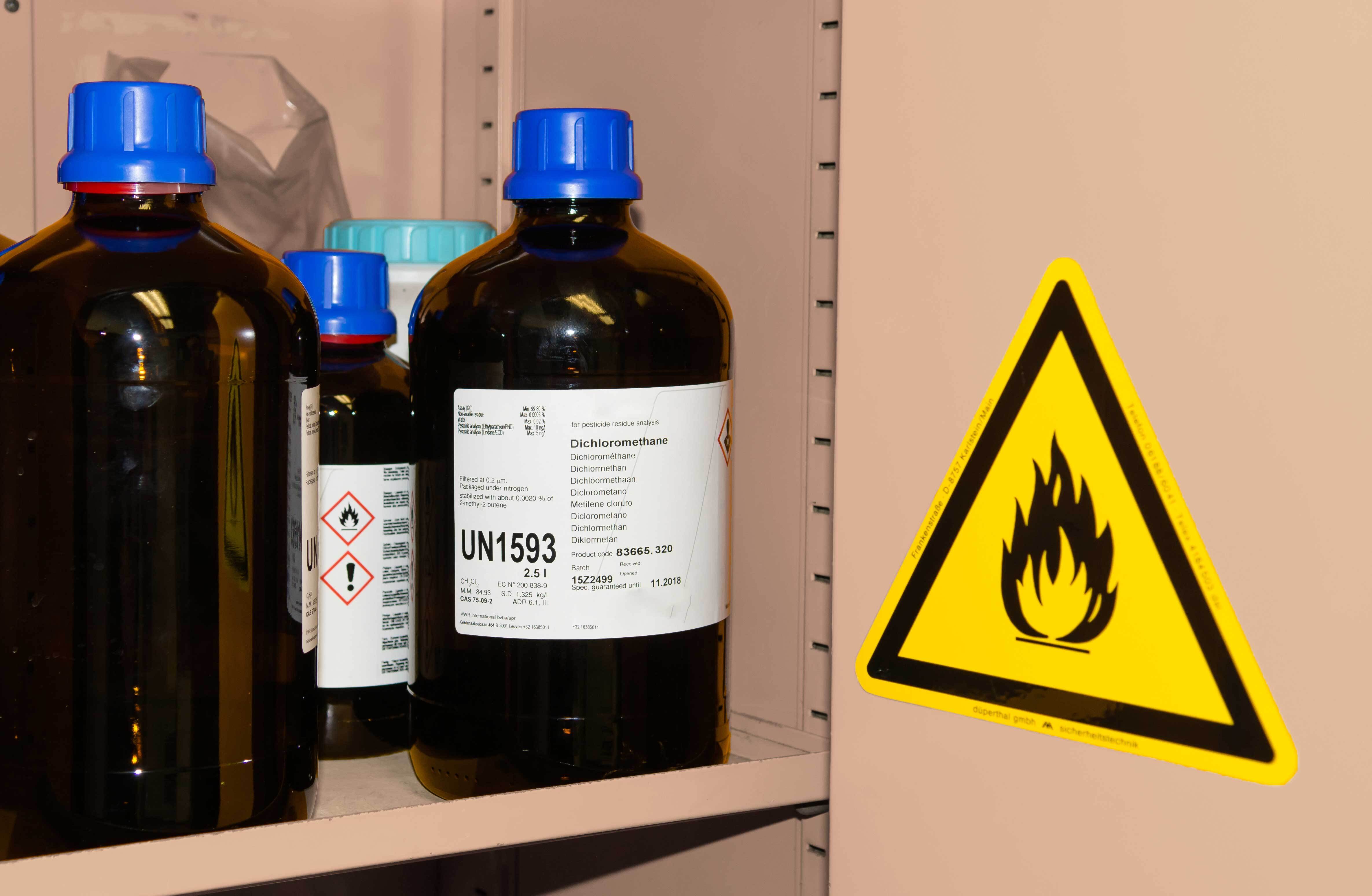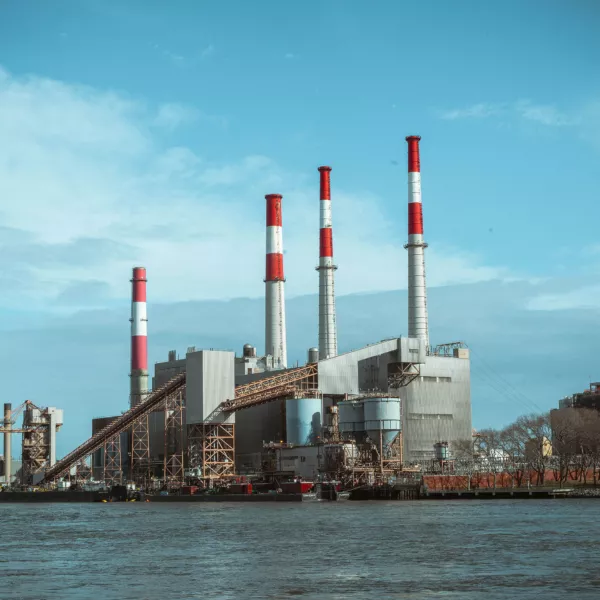Restricted Chemicals
About
Companies that handle restricted chemicals need reliable solutions to protect workers’ safety, the local community, and the environment. DESOTEC has the answers: our full-service mobile filtration solutions remove substances of very high concern (SVHC), carcinogenic, mutagenic, and reprotoxic (CMR) chemicals, and persistent organic pollutants (POPs) from air and water in a safe and sustainable manner.
What are SVHCs, CMR chemicals, POPs and PFAS?
As scientific knowledge advances, we’re gaining a greater understanding of the need to protect health and the environment from certain chemicals. Fortunately, technology is also improving and DESOTEC offers innovative treatment solutions.
Substances of very high concern (SVHC) have serious and often irreversible health and environmental effects. Many pesticides, hormones, antibiotics, and industrial chemicals contain SVHCs.
Carcinogenic, mutagenic, and reprotoxic (CMR) chemicals are carcinogenic (causing cancer), mutagenic (causing changes to genetic materials), or reprotoxic (harming the reproductive process). They include benzene, acrylonitrile, and dichloromethane.
Persistent organic pollutants (POPs) are also known as “forever chemicals” because they break down extremely slowly in nature. These compounds harm aquatic life and may enter the human food chain. Some are now banned, such as dichlorodiphenyltrichloroethane (DDT), polychlorinated biphenyls (PCBs), and perfluorooctane sulfonic acid (PFOS). PFOS is only one of the thousands per- and polyfluoroalkyl substances (PFAS) which have quietly permeated our world and infiltrated every corner of our environment, reaching even drinking water sources. With new studies unearthing the potential negative effects on human health of PFAS’ excessive exposure, the EU persistent organic pollutants (POPs) regulation is restricting the use and emission limits of these molecules, among others, in industrial wastewater and air emissions.


Air emissions and wastewater from restricted chemicals
While the usage of SVHCs is restricted, some are unavoidable, such as dioxins and furans which are combustion by-products. Other common SVHCs include pesticides in the agricultural sector and hormones in pharma.
DESOTEC can help. Our air purification solutions are a sustainable alternative to regenerative thermal oxidisers (RTOs) and are more suitable for discontinuous production.
We also offer industrial water treatment for contaminated wastewater. Many restricted chemicals are adsorbable organic halogens (AOX), for which the activated carbon used in DESOTEC’s filters is certified as a Best Available Technique (BAT). Activated carbon filtration is also one of the most efficient and proven technologies to remove PFAS.
The closed design of all our filters means that there’s no need to manipulate waste on site, even during filter exchange.
Land remediation for POPs
Although many POPs, including PFAS, are heavily restricted today, they have left a legacy of contaminated land and groundwater at former industrial sites. Spills of creosote, petrochemicals, pesticides, and dry-cleaning fluids may all contain POPs.
DESOTEC is here for your firm. We partner with remediation companies, supplying filters that treat pumped-up groundwater or air emissions from excavated or thermally treated soil.
Our filters are mobile and have a small footprint, making them well suited to temporary projects at busy construction sites. If you discover POPs, including PFAS, unexpectedly, we can supply filters at short notice so your project can continue without delay.
This case study illustrates how DESOTEC mobile activated carbon treated and eliminated PFAS from groundwater.
Today’s industry is greener and safer than ever and it’s rising to the challenges posed by restricted chemicals. DESOTEC full-service sustainable mobile filtration solutions can help you protect people and the planet.
Complying with POPs & other regulations
Restricted chemicals are subject to tight regulation by the European Chemicals Agency (ECHA), even at very low concentrations. Once a chemical is included in the ECHA’s list of SVHC, the EU REACH legislation will mandate companies to verify whether their emissions contain it.
Many countries, including France, oblige construction companies to treat POPs if they find them during excavations.
To ensure full compliance with the stringent EU POPs regulation, DESOTEC has devised a validated method in collaboration with VITO laboratories to accurately measure the level of PFAS adsorbed on activated carbon.
If the PFAS concentration on the spent carbon is below the established limits outlined in the European POPs Regulation, the saturated carbon will be subject to a thermal reactivation process at DESOTEC’s facilities. This route reactivates the carbon while breaking PFAS down completely and safely, thus destroying it for good and avoiding their release in the environment.
However, when the PFAS concentration exceeds the EU POP limit, it is not allowed to reactivate the spent activated carbon in Europe. In that case, it will be transported to a specialised external party, ensuring safe and compliant treatment.
How we help you
DESOTEC sustainable mobile filtration solutions
Companies dealing with restricted chemicals, such as PFAS or other SVHCs, need purification solutions they can trust. DESOTEC’s mobile activated carbon filtration services are the answer.
Activated carbon filtration works on its own or combined with other treatments to reduce PFAS, POPs, and SVHCs to extremely low or even zero levels.
The handling of filtration waste is part of our service and safe. We have the expertise, equipment, and permits to do so safely. Saturated carbon is transported in closed filter units away from your site. All adsorbed molecules are destroyed in line with EU and local legislations. Carbon is reactivated where possible according to the POPs regulation, making this solution both cost-effective and sustainable. By using a safe, law-compliant, and environmentally responsible technology, DESOTEC is helping the industry get rid of these chemicals, forever.
For our new plant, we needed a reliable wastewater treatment process. DESOTEC helped us set up the best possible installation, given the complexity of our process. We are very pleased with the result.
E-book: How to remove PFAS for good while complying with the EU POPs regulation
Worldwide, PFAS have quietly permeated our environment. This e‑book gives more insights on how upcoming PFAS regulations will impact your business and how you can permanently and sustainably address the persistent challenge of ‘forever chemicals’ through DESOTEC’s secure and POPs‑compliant removal method.
Download our e-bookE-book: How to remove PFAS for good while complying with the EU POPs regulation
Worldwide, PFAS have quietly permeated our environment. This e‑book gives more insights on how upcoming PFAS regulations will impact your business and how you can permanently and sustainably address the persistent challenge of ‘forever chemicals’ through DESOTEC’s secure and POPs‑compliant removal method.
Download our e-bookOur filtration solutions
Mobile, modular industrial filtration that lets you focus on your business. Sustainable waste handling and round-the-clock support are included for a hassle-free service.
-
Industries we help
We partner with companies in a variety of sectors, adapting our modular filtration solutions to your unique needs. -
Our unique service
Our closed-loop, full-service model is as unique as your business needs. We’ll define the right filtration setup and safely recycle filtration waste, making it easy to go green. -
Your Sustainability Journey
Like you, we care about protecting our air, water, and soil for future generations. Our filtration solutions help you meet environmental standards, reducing your carbon footprint.


